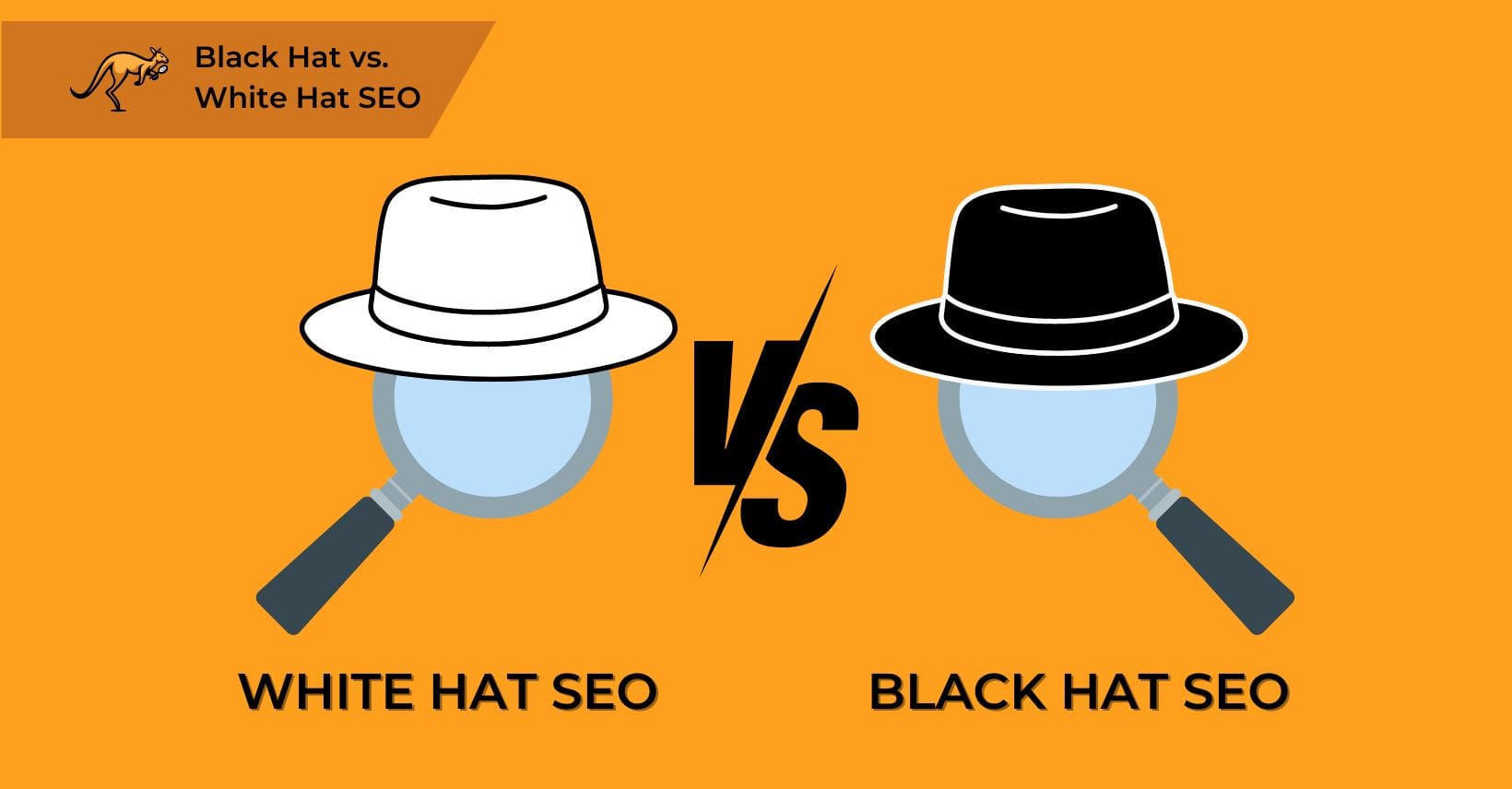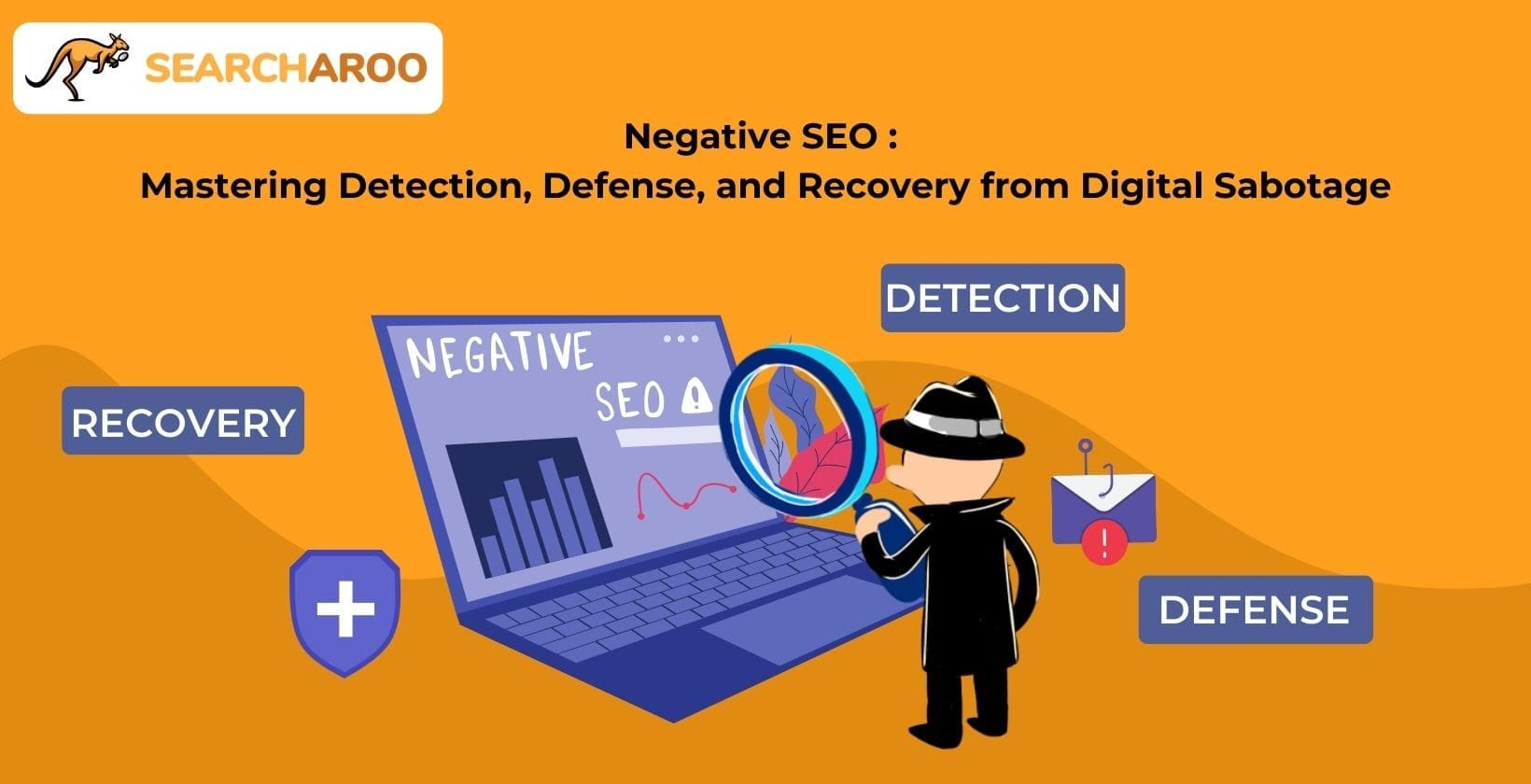Black hat and white hat SEO are two entirely different parts of search engine optimization, and both focus on completely different methods of boosting search engine rankings.
However, knowing what they are and why they are so distinct is important. While white-hat SEO is perfectly allowed, black-hat SEO can be a major risk, especially if you do not even realize you are getting involved in it.
But what do you need to know about black hat vs white hat SEO techniques, and what do they mean for your site?
What is White Hat SEO?
White hat SEO encompasses optimization techniques that follow Google’s guidelines, which serve as the standard for most search engines. White hat SEO involves practices that align with search engines’ expectations for fair and ethical website promotion..
For example, these would be things that impact search engine rankings fairly and promote good content to the top of search engine results pages.
White-hat SEO strategies emphasize creating quality content to improve search rankings naturally. This approach, endorsed by Google, involves producing valuable articles that attract backlinks. This ethical method contrasts with the manipulative techniques of black hat SEO, which we will discuss next.
What is Black Hat SEO?
Black hat SEO represents techniques that deliberately violate search engine guidelines to achieve quick ranking improvements through manipulative means. Black hat SEO practices break search engine rules and push for illegitimate success at the expense of user experience and ethical standards.
Black-hat techniques include keyword stuffing, buying massive links, content automation, “doorway pages,” and attempts to trick Google search engine spiders.
Black hat SEO involves methods that violate search engine guidelines, such as those established by Google. Search engines generally disapprove of these tactics. Following this discussion on black hat SEO, we will explore the concept of Grey Hat SEO, which represents a middle ground between acceptable and manipulative practices.
What is Grey Hat SEO?
Grey hat SEO (or Gray hat SEO) occupies the middle ground between white hat and black hat approaches, combining techniques from both methodologies without strictly adhering to either standard. The fundamental difference between these three approaches lies in their adherence to search engine guidelines: white hat SEO fully complies with guidelines, black hat SEO deliberately violates them, while grey hat SEO blends compliant and non-compliant tactics, such as creating quality content while purchasing backlinks..
Grey hat SEO is often seen as the “safer” version of black hat SEO, with the idea being that the SEO strategy looks like white hat SEO and is thus safe from penalties.
Grey hat SEO tactics blend beneficial and harmful practices, posing a calculated risk for website owners without assured outcomes. This uncertainty leads us to explore the ramifications of riskier strategies, specifically focusing on why black hat SEO techniques are detrimental.
Why is Black Hat SEO Techniques Bad?
Black hat SEO techniques go against Google’s guidelines, which is the core of the problem.
Google’s search engine guidelines exist to regulate what site owners do and ensure that the Google bot system and human users are being served relevant, quality content.
Google expects all SEO practices to be white hat since these methods focus on what they want from high-ranking search results: proper effort, high-quality content, high relevancy, and long-term trust.
Employing black hat SEO techniques breaches Google’s search engine guidelines, risking penalties that can undermine your site’s ranking. This leads us to explore the Consequences of Using Black Hat SEO Tactics.
Search engines respond differently to various SEO approaches based on their alignment with established guidelines. Search engines reward white hat SEO practices with sustained visibility and higher rankings, which recognize the value these practices bring to users. Conversely, search engines penalize black hat SEO techniques through algorithmic filters or manual actions that can significantly reduce visibility or completely remove sites from search results, while grey hat techniques may temporarily succeed but carry substantial risk of future penalties.
What are the Consequences of Using Black Hat SEO Tactics?
Doing anything considered black hat SEO carries multiple risks:
- Your links could be deindexed.
- Your search rankings could be dropped considerably.
- Your site could be delisted entirely from search results.
If Google notices your black-hat SEO practices and decides that your SEO efforts are not in line with their expectations, your site’s SEO will crumble under its penalties.
These penalties are designed to deter practices like keyword stuffing and the purchase of multiple low-quality links. By negating these tactics, they eliminate unjustly obtained rankings from your site. Next, we will discuss how long these penalties last.
How Long Do These Penalties Last?
If you are noticed performing black hat SEO techniques and receive a penalty, the severity often depends on the exact circumstances of your site’s actions. A site penalized for engaging in black hat SEO techniques may suffer severe consequences, such as lowered search rankings or even removal from search engine indexes.
Having a lot of spam links will often result in a short-term penalty, as Google knows that those links may have pointed at your web page without you intentionally building them.
Engaging in practices that mislead search engine algorithms can lead to severe penalties. In extreme cases, these penalties can become permanent, making starting afresh with a new website and domain advisable. This cautionary note discusses the ethical considerations of SEO tactics, specifically choosing between White Hat and Black Hat strategies.
Choosing White Hat Vs Black Hat
In general, it is always better to stick with white-hat SEO techniques if you can. While a white-hat SEO strategy takes more effort, it is also the intended way to approach SEO. It focuses on the things that would naturally rank you higher anyway.
For example, improving the user experience is a white-hat technique. This not only ranks you higher but also provides long-term improvements to your site that will make a big difference to your audience.
Black hat SEO methods use less effective techniques to manipulate search engine rankings. Despite its popularity, one exception is the widespread use of purchased links, a black hat strategy. This discussion explores both black-hat and white-hat SEO tactics.
Using White Hat and Black Hat SEO Tactics
While the white hat vs black hat SEO distinction is clear, many people attempt to use both. While combining white hat and black hat techniques can sometimes work, you must remember that the risk of penalties is always there.
The biggest concern when using white-hat and black-hat SEO practices is making sure that you are not too biased toward black-hat SEO. For example, many sites buy paid links but only buy paid links and do no actual search engine optimization on-site, which flags them as suspicious.
Using black hat SEO tactics risks penalties from search engines, which could lower your site’s ranking and boost competitors’. Adhering to ethical SEO practices is essential for generating high-quality plumbing leads. Next, we’ll discuss identifying white hat versus black hat SEO techniques.
Identifying White Hat vs Black Hat SEO Techniques
While it eventually becomes quite easy to tell which is which through common sense, it can be difficult to understand what separates a white-hat SEO trick from a black-hat one.
Before you develop an overall SEO strategy, you must understand the long-term risks associated with black hat SEO and how to identify black hat SEO methods before you begin.
White Hat SEO Links
White hat link building methods focus on earning backlinks organically through legitimate means that search engines approve. White hat link building includes creating shareable content, guest posting on relevant sites, building relationships with industry influencers, participating in relevant online communities, and creating resource pages that naturally attract links from other websites recognizing their value..
Effective link-building through organic methods will give you huge SEO boosts and, more importantly, not put you at risk of any penalties in the long term.
Black Hat SEO Links
Black hat link building methods involve manipulative practices that violate search engine guidelines to artificially inflate a site’s backlink profile. Black hat link building techniques include purchasing links, creating link farms, participating in link exchanges with irrelevant sites, using automated link building software, implementing hidden links, and creating private blog networks specifically designed to manipulate search rankings..
This becomes much more obvious if many of the links are unrelated to your site or were all earned in a short period with no obvious reason why (such as new content that went viral).
It is probably a black hat if you are doing anything other than earning the links through hard work and patience.
White Hat SEO On-Page
White-hat on-page techniques focus on improving your site and properly optimizing it for search engines. White hat SEO strategies include improving user experience, compressing images, optimizing meta tags, creating quality content, and earning backlinks through valuable resources that attract natural link building..
Black Hat SEO On-Page
Black-hat on-page SEO uses things like hidden text to try and hide links away in other parts of the site or even turns the entire site into a load of keywords that are purely meant to gain traffic.
Unlike white-hat SEO techniques, this does not usually mean improving the user experience. Keyword stuffing might make you rank higher in the short term, but it also makes your actual site far less high-quality in the users’ eyes.
Once again, if it goes against Google’s intention of SEO being based on quality and relevancy, it is probably a black hat.
Other White Hat Techniques
There are many white hat SEO details that could be covered, but most of them are common sense. If Google allows it, then it falls under the white hat category.
Knowing which methods are considered black hat means you already know most white hat techniques. After all, black-hats are just using existing white-hat techniques in less-fair ways, such as buying links instead of earning them.
Other Disallowed Techniques
From hidden text and “doorway pages” (which send human users and indexing bots to separate main pages) to setting up an entire website network to feed links back to your own, search engines are not willing to accept many techniques.
Getting caught up in the idea that search rankings are your end goal is easy within digital marketing and SEO. While this is true, you must also produce a web page and website worthy of the search engine results page you appear on.
Some techniques involve targeting competitors with negative SEO, such as directing harmful links to their sites to incur penalties. This practice abuses Google’s systems and is strongly discouraged. Therefore, it is important to explore how to adhere to ethical, white-hat SEO practices.
How to Stick to White-Hat SEO
You can ensure white hat SEO compliance by regularly auditing your practices against search engine guidelines and industry best practices. Website owners with limited SEO experience should focus on creating valuable content for users rather than search engines, follow published guidelines from major search platforms, use SEO tools that highlight potential violations, and consider consulting with ethical SEO professionals who emphasize sustainable growth over quick wins..
There are three key things to consider when performing SEO if you want to avoid any unapproved methods:
Is This In Search Engine’s Guidelines?
Doing anything that search engines have explicitly banned is a terrible idea if you want to focus on white-hat methods. This would give search engines the perfect opportunity to penalize your site, even if the rest of your site is perfectly clean.
Would a Google Employee Allow This?
Sometimes, there are techniques that search engines have not openly banned that are still not approved. For example, copying content wholesale from another site is not technically banned. However, it will still tank your SEO results if it gets noticed.
Is This Fair For My Competitors?
Google and most other search platforms want to be fair. To them, the top search results should be the most relevant and well-respected, not the ones that have spent the most on purchased links or under-the-table deals to spam their competitors with terrible backlinks.
If you are looking into SEO, it is important to remember that not all methods are allowed. While you can sometimes get away with black-hatting your site to a new tier of success, it only takes so long before a crawler will notice—and that is your risk.
Are There Any Affordable White Hat SEO Services?
Affordable white hat SEO services can be a valuable resource for those looking to enhance their SEO without risking penalties. These services ensure adherence to ethical practices while optimizing site performance. To find reliable providers, one might consider using a platform like Searcharoo to compare options and ensure they align with white hat methodologies.
Concluding Insights on White Hat vs Black Hat SEO
Understanding the differences between white-hat and black-hat SEO is important for sustainable and ethical search engine optimization. White-hat SEO, which aligns with search engine guidelines, is recommended as it builds trust and ensures long-term benefits for your website. Conversely, black-hat SEO risks penalties and damages your site’s credibility.
Choosing providers that adhere to white hat strategies is essential for businesses seeking affordable and reliable SEO services. Platforms like Searcharoo can help compare these services, ensuring compliance with ethical standards and fostering lasting success in the competitive digital landscape.
Ethical considerations in search engine optimization extend beyond simply following guidelines to encompass responsibility toward users and the digital ecosystem. SEO ethics involve transparency in how websites present information to both users and search engines, respect for user privacy and data collection practices, fair competition that avoids undermining competitors through negative SEO tactics, and commitment to providing genuine value rather than manipulating algorithms at the expense of user experience.





